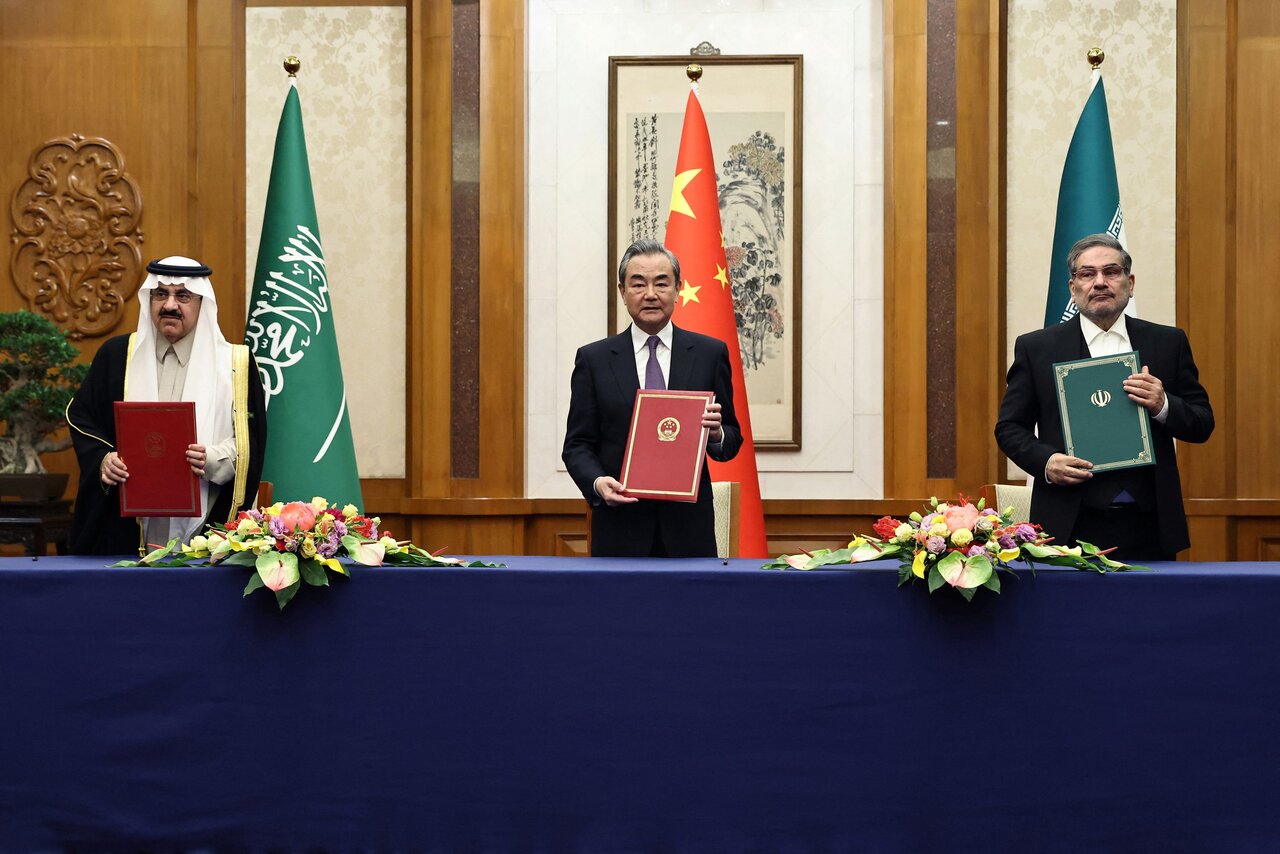Indicators of where the Chinese brokered Iranian-Saudi Arabian deal is heading

The Chinese brokered deal between Iran and Saudi Arabia to resume diplomatic ties holds the prospect of the U.S. coming to a point of recognition of the regional power balance, that has been shifting in favour of the resistance axis in West Asia, spearheaded by Iran, for a long time now. This deal may therefore be the preliminary introduction to a larger deal pertaining to U.S.-Iranian relations through the nuclear negotiations.
The reality is that nothing has changed overnight. Iran is in a strong position and has not entered this agreement out of desperation. The American fist is only getting smaller and the shift towards a multi-polar world is happening before us.
Saudi Arabia's stance also hasn't changed overnight. Can it take a position not in line with the U.S.? The reality is that Saudi Arabia's existence depends on U.S. support and it is not possible for it to exit from the American trajectory or withstand U.S. sanctions, as it is wholly dependant and has no domestic capability to depend on. Meanwhile, Saudi Arabia is looking to create a new middle balance in light of these global developments.
Given Iran's strength in the face of U.S. conspiracies and thwarting Washington’s plans for the region, Tehran’s credibility and rising alliances on the world stage, now the delay of the nuclear negotiations occurs on Iranian terms and demand. The U.S. may now be seeking a formula for co-existence with Iran, through acknowledging Iran's undeniable strength and power.
This recognition allows for agreements on mutual interests through negotiations. For this to occur, it requires creating an environment with fewer tensions, since the U.S. hopes what couldn't be achieved through military means and sanctions could be achieved through diplomacy as a last resort.
If Iran is strong, why does it feel the need to enter this deal? Iran is seeking to eliminate tension in the region and conspiracies against its nation. Iran at the start did not cut diplomatic ties with Saudi Arabia, but had answered to this call to resume ties. Iran through this process is giving credit and political influence to China, that acts as a blow to U.S. prestige and political influence.
Certain events have occurred over the past days that seem to cement America’s satisfaction with the Iran-Saudi Arabia deal:
1) U.S. allowing Iraq to release $500 million in Iran's frozen assets
2) U.S. unfreezing Iranian money through Qatar opening credit with Iran
3) The Iranian-U.S. prison exchange
4) The Houthi and Yemeni Saudi-backed government prison exchange.
However, if there appears to be a breach in the deal, it will indicate the U.S. is not happy that Saudi Arabia has conducted this deal through China. Indicators may include U.S. statements in the coming days not in favor of Saudi Arabia, the reservation of its funds and assets, or any kind of punishment it may face.
Secondary indications include Saudi Arabia deteriorating from the deal and slowing progress, and Saudi Arabian media campaigns against Iran intensifying. In any case, the damage to American interests would have been done through this introductory gesture, in the case of American disapproval.
A less plausible analysis that can also be considered for the brokering of this deal under U.S. approval, is the preparation of Saudi Arabia opening ties with the Zionist regime. As a prerequisite balancing act to that, Saudi Arabia may seek to resume relations with Iran, to neutralize such a move.
This is important given in normal terms; Saudi Arabia wouldn't be trusted by the Muslim Ummah as the "custodian of the two holy sites" if it recognizes the Zionist regime publicly, as Saudi Arabia at face value is seen as a symbol for the religion of Islam.
Overall, what seems to be more a plausible argument to date is the U.S. seeking a formula for co-existence with Iran through easing tensions, as an introduction and prerequisite to a larger deal between the U.S. and Iran on the nuclear front.
Leave a Comment